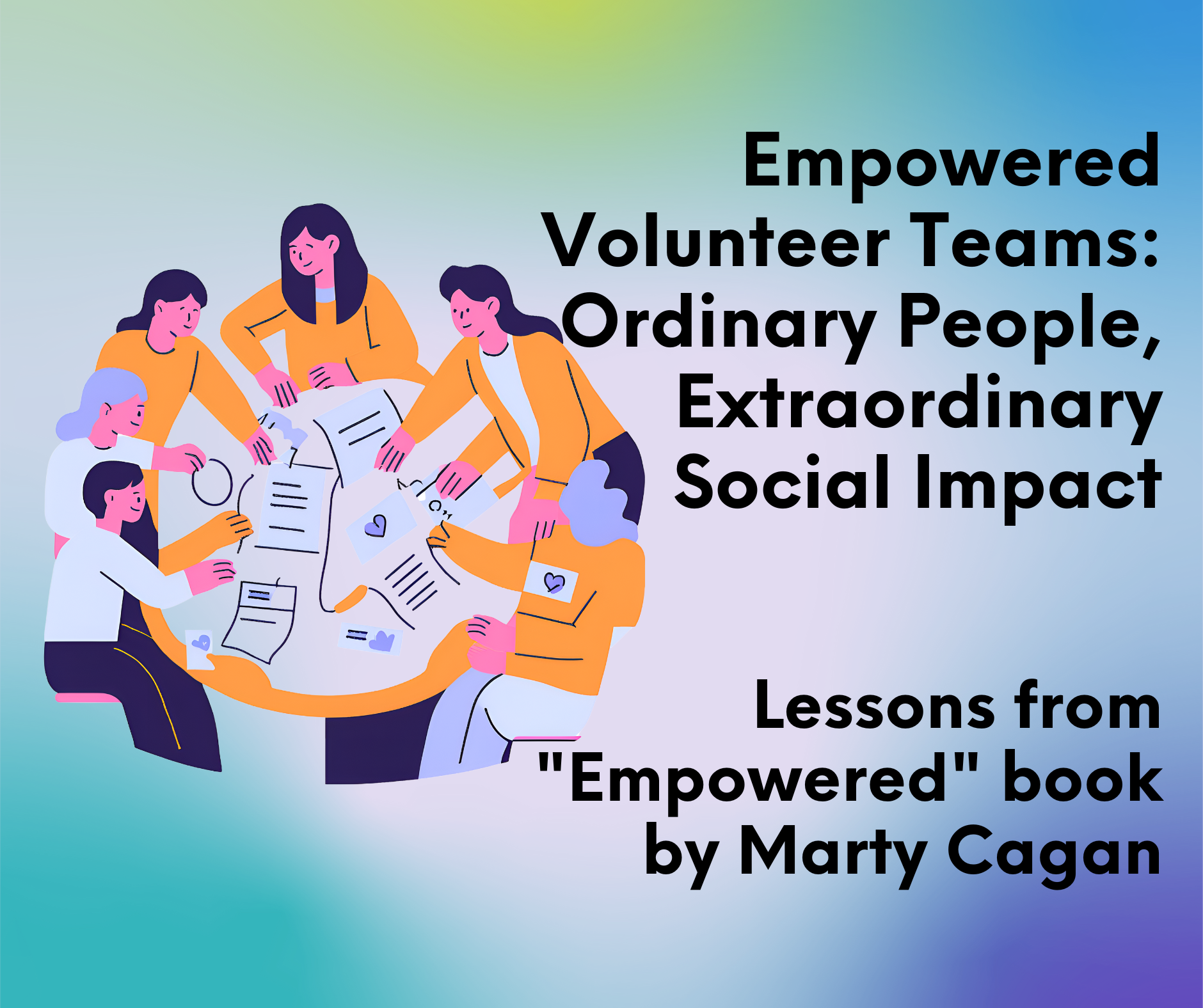As I recently embarked on my journey as a product manager, I discovered Marty Cagan, a renowned figure in product management. Cagan’s book “Empowered: Ordinary People, Extraordinary Products” outlines principles for building successful product teams. While primarily focused on the tech industry, based on many years of volunteering in a nonprofit organisation, I realised that these principles could also be applied to nonprofit organisations that rely on volunteers. In the book, Cagan particularly highlights that it is neither talent nor specialised skills or experiences that results in successful teams but well-defined principles, processes and culture.
In this blog post, I explore how the principles of empowered teams can be adapted to create a culture of empowerment within nonprofits, enabling volunteers to make a significant impact on the organisation’s mission. Empowered volunteers are more engaged, productive, and likely to stay involved in the long term which is a great benefit for organisations.
Principles for Empowered volunteer teams:
1. Mission clarity and alignment: Empowered teams are driven by a clear mission. For volunteers, who are motivated by the cause rather than monetary compensation, it becomes crucial for nonprofits to define and communicate a compelling mission statement. Regularly connecting volunteers’ work to the overall impact and celebrating successes reinforces the value of their contributions.
2. Small, autonomous, and cross-functional teams: Cagan suggests organising empowered teams into small, autonomous, and cross-functional units. In nonprofits, these could be working groups, committees, or project-based teams. Nonprofits can thus empower volunteers by assigning them ownership of specific projects or tasks within the teams. This fosters accountability, engagement, and agility in problem-solving.
3. Focus on outcomes and be beneficiary-centric: Empowered teams prioritise meeting user needs, and for non-profits, this translates to prioritising the needs of beneficiaries. Clear project goals aligned with the mission, along with defining success metrics and tracking progress, help volunteers understand the impact of their work. Celebrating achievements and embracing a culture of continuous improvement are crucial aspects.
4. Continuous learning: Empowered teams are committed to continuous learning and growth. Nonprofits can support volunteers’ development by providing learning opportunities, offering coaching, and promoting collaboration across teams. Sharing knowledge and expertise further contributes to the growth of empowered volunteer teams.
Culture of Empowered Volunteer Teams:
1. Trust and respect: Empowered teams require trust and respect among team members. Nonprofits should create a safe and supportive environment where volunteers feel comfortable sharing ideas, asking questions, and learning from mistakes.
2. Transparency, communication, and collaboration: Non-profit organisations should be transparent about their goals and priorities and have a culture of feedback, fostering open communication and collaboration. This promotes a sense of shared purpose and enables knowledge sharing among volunteers.
3. Continuous learning: Nonprofits should prioritise continuous learning and improvement at both organisational and individual levels. Encouraging a growth mindset among volunteers and providing opportunities for skill development contributes to their empowerment.
4. Empathy: Nonprofits should exhibit empathy towards both beneficiaries and volunteers. Celebrating diversity, valuing unique contributions, and recognising achievements create a positive and motivating work environment for empowered volunteer teams.
In conclusion, by adopting the principles outlined in Marty Cagan’s “Empowered,” non-profit organisations can create a culture of empowerment for volunteers. Clear mission alignment, small autonomous teams, beneficiary-centric focus, continuous learning, and a supportive culture contribute to the extraordinary social impact that empowered volunteer teams can achieve.
